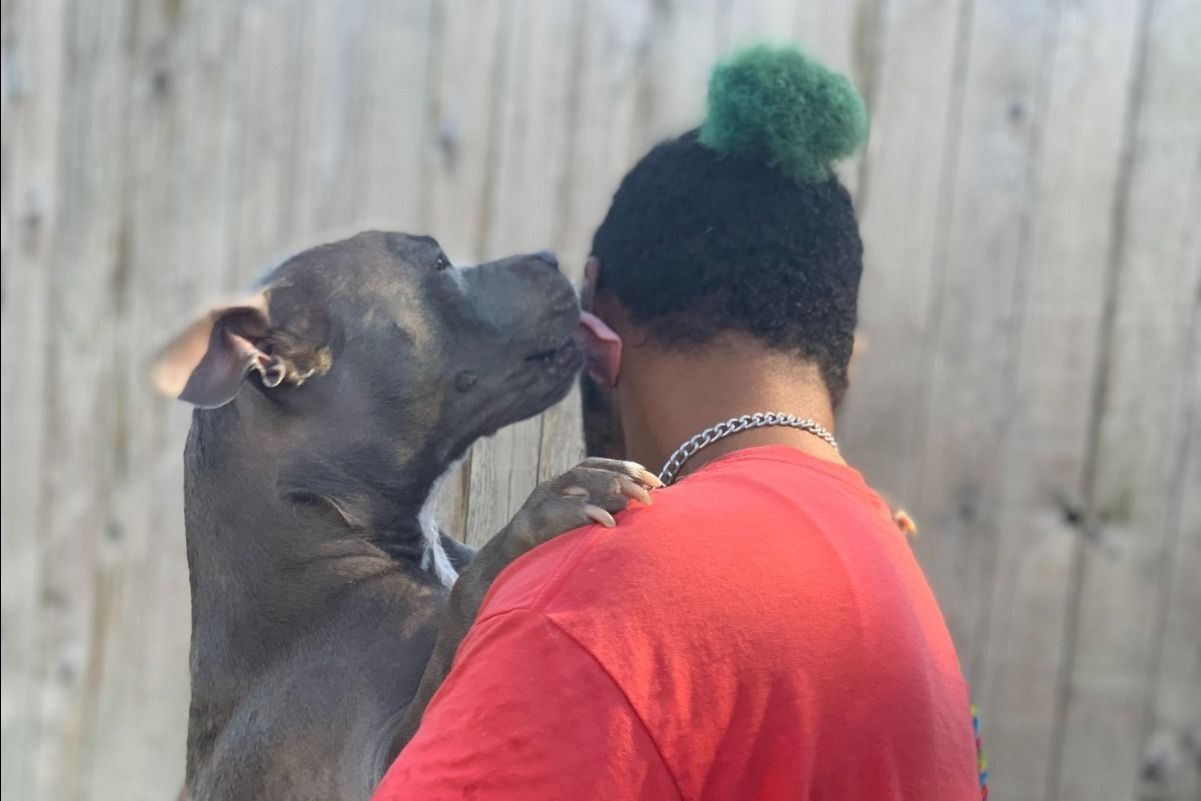5 FACTS ABOUT DOG KISSES!
FACT 1: PUPPIES & DOGS LICK TO GROOM THEMSELVES
From a very young age puppies are taught to lick themselves as a way of self grooming. Licking is also a sign of welcoming other dogs into the pack.
FACT 2: DOGS LICK OTHERS TO SHOW SUBMISSIVENESS
Adult dogs lick as a sign of deference or submissiveness to a dominant pack member. The dog doing the licking usually lowers its body to make itself smaller, and looks up, adding to the effect of subordinate behavior. The dog receiving the face licks shows its dominance by standing tall to accept the gesture, but doesn't return the favor.
FACT 3: DOG MOUTHS ARE NOT AS "CLEAN" AS SOME SAY
Dogs and humans have comparable amounts of bacteria in their mouths, and the chances of getting sick from your dog’s kisses are low. Still, the CDC warns of the possibility of transferring diseases mouth-to-mouth between pets and their human parents (like Giardia and staph infections).

FACT 4: SOME DOGS KISS MORE THAN OTHERS
If you, as a puppy parent, encouraged or heaped praise on your furry friend when he kissed you, he’ll carry that behavior into adulthood. Similarly, if you’re the only one in your household that encouraged such behavior, your dog will likely kiss you more often than others.
FACT 5: IF YOUR DOG DOESN'T KISS YOU, DON'T WORRY, THEY STILL LOVE YOU
If your dog doesn’t kiss you, that doesn’t mean he dislikes you, nor does it mean he is depressed or physically ill in any way. A sudden change in his behavior, however, like normally being very kissy and stopping for no apparent reason, might be cause for concern. Consult your vet whenever you see a major shift in your dog’s behavior like this.

